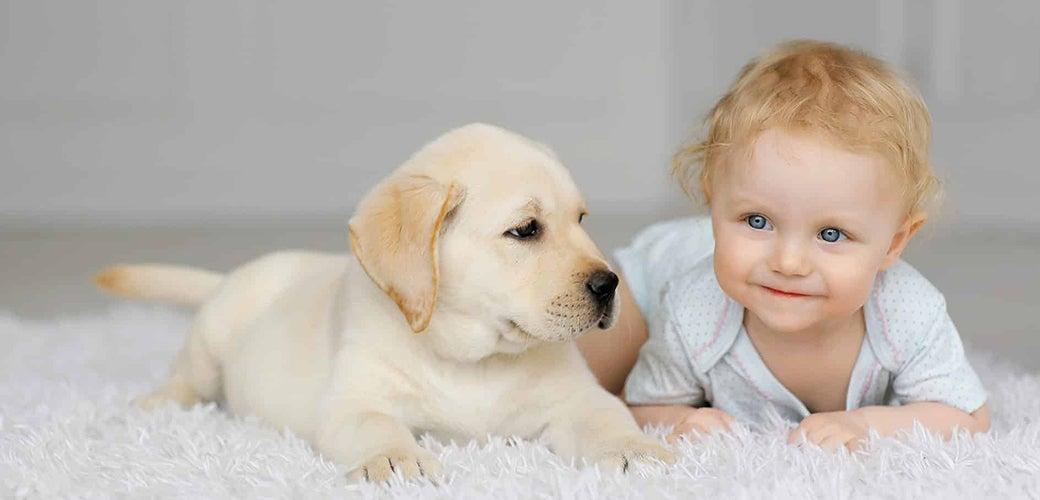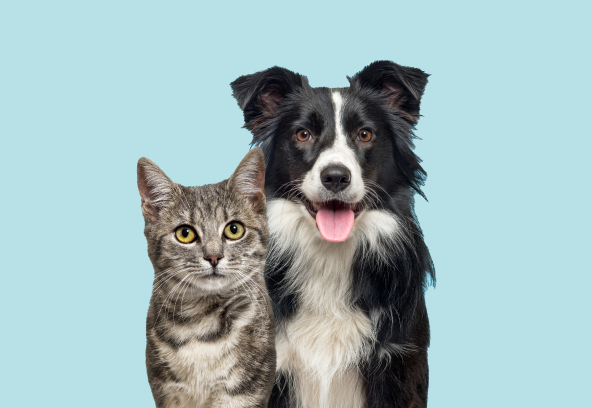
How to Bring Your Pets and New Baby Together

Introducing a new baby to your family can disrupt your dog or cat’s routine and cause distress. Some forward planning will help ensure success.
Pet parents often view their cats or dogs as their ‘fur babies’ and consider them part of the family. However, if a new human baby is introduced to the family, this can often confuse and distress your pet.
A baby is a beautiful and exciting new addition to the family, but it can disrupt your dog or cat’s regular routine. From your pet’s perspective, there is now a loud, small human living in the house who sounds, smells and acts differently to the rest of its family.
To reduce stress on your pet and set up a successful and happy relationship between them, there are some simple steps you can take to prepare your dog or cat for the arrival of a new baby.
Introduce changes in advance
The pregnancy phase is the ideal time to introduce gradual changes to your pet’s routine. This is to help your dog or cat acclimatise to the new routine that will take place when there is a new baby in the house. This includes creating purposeful one-on-one times with your pet to support your bond, which will help alleviate any stress they may feel about the changes.
Introducing your pet to baby gear like strollers, baby seats and high tables while under your supervision will help ensure it is familiar with it before the baby arrives and – particularly in the case of dogs – it understands to leave the equipment alone.
This obedience training will also help create structure for your pet, which defines clear boundaries and introduces predictability for your pet. Another step in preparation is to cordon off areas of the house that your pet is not allowed. These pet-free areas will be essential to keeping your baby safe and happy.
Plan the return from hospital
When the mother returns from hospital after giving birth, your dog especially may be excited to see her and jump up, causing a negative reaction or outcome. To address this scenario, the mom should go into the house alone first, to say hello to the pet without it jumping up on the baby. After the initial greeting, bring the child inside to one of the pet-free areas so the dog or cat can smell and hear the new addition to the family.
Cats are more aloof and need the opportunity to approach and retreat from the baby on its own time – always under careful supervision – to adjust to the change.
Give your pet rewards for correct and calm behaviour and make sure to give pats and attention to your pet when the baby is in the room. This ensures the dog or cat will associate the baby with positive outcomes.
A new baby is an exciting time for everyone, including your pet. If the introduction is positive and constructive, it will create the foundation for a long-lasting and loving bond between baby and pet.

